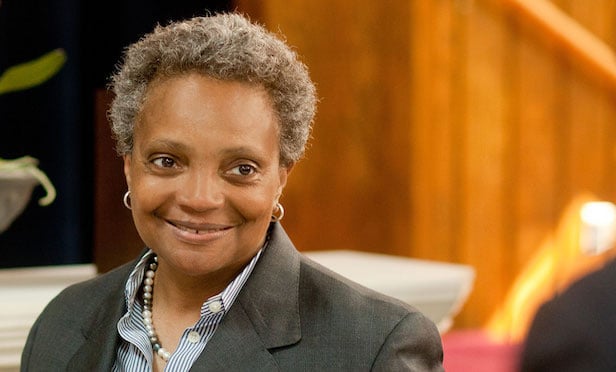CHICAGO—A feasibility study on a potential casino in Chicago by the Illinois Gaming Board finds none of the five sites it reviewed as economically feasible due to the current tax structure.
The report released on Tuesday cites the current tax and fee structure as “very onerous.”
“Our understanding is that on top of the existing tax structure on Adjusted Gross Receipts (AGR) paid by all Illinois casinos, the City of Chicago casino would also pay an additional 33 1/3% privilege tax on AGR,” the report states. Despite the fact that the Illinois Gaming Board says that a casino in the City of Chicago has the potential to become the highest grossing casino in Illinois, significantly higher than the current market leading Rivers Casino in Des Plaines, the Chicago casino would pay approximately $311 million in AGR and admissions taxes, or an effective rate of approximately 39% relative to AGR of $806 million. When combined with the 33 1/3% additional privilege tax on AGR specific for the City of Chicago casino, the effective tax rate would be approximately 72%.
“It can be further expected that a casino’s operating expenses (e.g. advertising, marketing, payroll, rent, utilities, etc.) can easily approach the equivalent of 30% of AGR, if not higher. Combined with the effective tax rate of 72% yields an expense structure that could exceed casino revenue. Ultimately the additional privilege tax on AGR specific to the City of Chicago results in none of the five sites being financially feasible,” the report states.
The gaming board report later notes that the amount of profit relative to total development costs, inclusive of licensing and reconciliation fees, would be at best result in a 1% or 2% return annually, which is not an acceptable rate of return for a casino developer on a greenfield project.
“But for this incremental tax, any of the sites analyzed herein would likely have a profit margin broadly in line with the Illinois and regional casino peer group average in the low-to-mid 20% range. However, we believe a reasonable casino developer would not move forward with a greenfield casino project that has, at best, a low single digit profit margin,” the report states.
The five sites selected for the study by the City of Chicago were: Harborside Illinois Port Authority Golf Course (111th St. and Bishop Ford Freeway); the former Michael Reese Hospital (31st St. and Cottage Grove Ave.); Pershing Road and State St. (former Robert Taylor Homes; Roosevelt Rd. and Kostner Ave. and the former U.S. Steel Plant (80th St. and Lake Shore Dr.).
Chicago Mayor Lori E. Lightfoot responded to the independent report commissioned by the Illinois Gaming Board by saying, “We have been clear from day one that the creation of a new casino for Chicago has to be financially viable and address the revenue needs of the City of Chicago. While the study confirms our concerns about the tax structure that the legislature passed, we know that this can be addressed, and we look forward to working with the governor and legislative leaders to revise the legislation and ensure a new casino will be beneficial for Chicago’s communities and the entire state.”
The feasibility study, required by state statute, marked the first step in the city’s process for moving forward with a casino by seeking to evaluate the economic feasibility of the project. A separate process will inform the site selection for a casino and will be met with a robust community engagement process.
Mayor Lightfoot also announced the results of the initial public survey to identify Chicagoans’ preferences and top priorities for a new Chicago casino, which will help guide future decisions about the casino process. In just under three weeks, more than 10,000 residents provided their feedback on key priorities for the casino, with focus on revenue generating ability and preferred location.
“The initial results of our survey out today provide valuable insight as we explore the best ways for a casino to generate new revenues for our city and residents. One of the key messages we heard from Chicagoans is that they would like to see the casino generate tax revenue for the City,” said Mayor Lightfoot
The initial results also indicate that residents are interested in the casino’s ability to generate new revenues, address Chicago’s pension costs and offer new employment, with responses on preferred amenities, location as well as biggest areas of concern for residents varying across the board. The full report on the preliminary survey findings can be found here.
Some of the key findings of the survey include:
• 73% of the responses said the most important benefit of opening a casino in Chicago are increased tax revenue and increased employment.
• 36% of respondents indicated they would like to see a casino built near downtown while 32% indicated they would prefer a location that will generate new development.
• Most respondents want the casino to include amenities such as restaurants, theater or live entertainment.
The biggest concerns identified in the survey were related to increased traffic and congestion, gambling addiction, and displacement of residents.
Overall the initial survey results showed respondents were generally positive about a new casino in Chicago. However, respondents also indicated that the city should think carefully about additional economic development to support residents of those communities if one of those areas was chosen as the new site, the mayor states.
A new casino is envisioned for Chicago as a result of recently enacted legislation. Under the state law, new revenues from a Chicago casino will be used to fund Chicago’s police and fire pensions. It is estimated that a Chicago casino will create thousands of jobs as well as contracting opportunities for the community.
© Touchpoint Markets, All Rights Reserved. Request academic re-use from www.copyright.com. All other uses, submit a request to [email protected]. For more inforrmation visit Asset & Logo Licensing.








